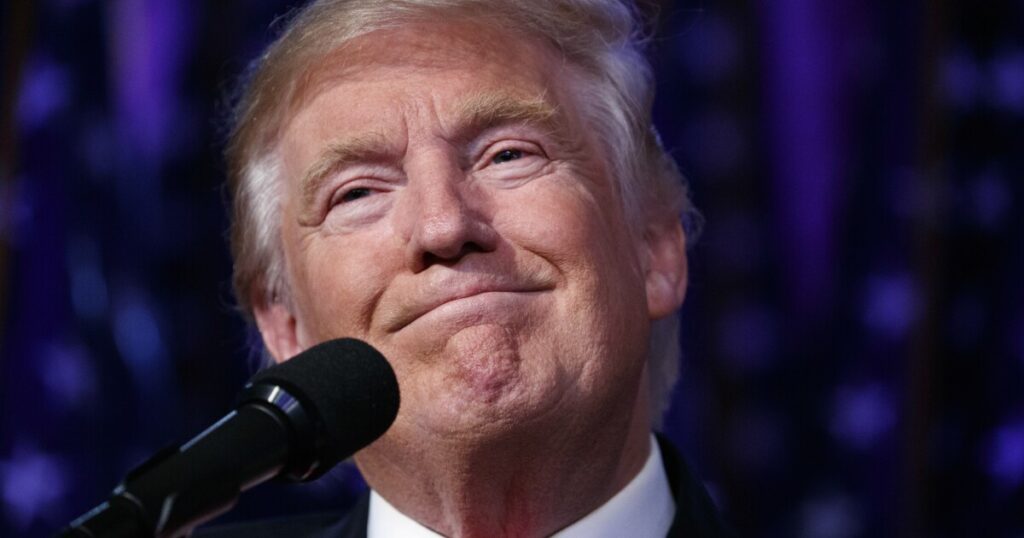A federal court has determined that President Donald Trump does not have the authority to unilaterally impose tariffs, dealing a sweeping blow to the president’s main weapon in his ongoing global trade war.
A panel of judges on the U.S. Court of International Trade found the tariffs were unlawful and permanently vacated them.
Since Trump announced sweeping tariffs on more than 50 countries in April, his administration has faced half a dozen lawsuits challenging the president’s ability to impose tariffs without the approval of Congress.
The Court of International Trade issued its ruling in a case brought by a group of five small businesses who argued that Trump’s tariffs are an “unprecedented power grab.”
Lawyers for the small businesses alleged that the International Emergency Economic Powers Act — which Trump invoked to impose the tariffs — does not give the president the right to issue “across-the-board worldwide tariffs,” and that Trump’s justification for the tariffs was invalid.
“His claimed emergency is a figment of his own imagination,” the lawsuit said. “Trade deficits, which have persisted for decades without causing economic harm, are not an emergency.”
During a hearing earlier this month, a group of three judges — who were appointed by presidents Obama, Trump and Reagan — pushed a lawyer for the small businesses to provide a legal basis to override the tariffs. While a different court in the 1970s determined that the Trading with the Enemy Act of 1917 — the law that preceded the International Emergency Economic Powers Act — gave the president the right to impose tariffs, no court has weighed whether the president can impose tariffs unilaterally under the IEEPA.
During a May 13 hearing, Jeffrey Schwab, a lawyer from the conservative Liberty Justice Center representing the plaintiffs, argued that Trump’s purported emergency to justify the tariffs is far short of what is required under the law.
“I’m asking this court to be an umpire and call a strike; you’re asking me, well, where’s the strike zone? Is it at the knees or slightly below the knees?” Schwab argued. “I’m saying it’s a wild pitch and it’s on the other side of the batter and hits the backstop, so we don’t need to debate that.”
The ruling marks the first time a federal court has issued a ruling on the legality of Trump’s tariffs. In May, a federal judge in Florida nominated by Trump suggested the president has the authority to unilaterally impose tariffs, but opted to transfer the case to the Court of International Trade.
The decision was made in a multi-state lawsuit including Arizona Attorney General Kris Mayes and Oregon Attorney General Dan Rayfield.
In reaction to the ruling, Arizona Attorney General Mayes said:
“I spearheaded this lawsuit because President Trump’s tariffs – a tax on Arizona families and businesses – were poised to devastate our state’s economy. I will continue to fight for affordability for Arizonans and against President Trump’s illegal abuses of power.”
The case is led by Mayes and Oregon Attorney General Dan Rayfield. Also joining the lawsuit are the attorneys general of Colorado, Connecticut, Delaware, Illinois, Maine, Minnesota, Nevada, New Mexico, New York and Vermont.
This is a developing story. Please check back for updates.



